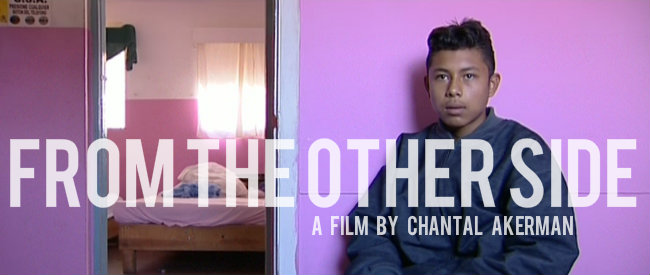Documentary filmmakers are not journalists: it is not our job to be “objective” – as if there even is such a thing as objectivity that one could actually practice in fields like journalism. It is not our job either to tell the whole story or give a full history, again, as if such a thing were even possible to do (especially in two hours or less of screen time). Rather, as far as I am concerned, it is a documentarian’s job to tell stories that challenge established narratives, and to do so in a formal and artful manner that encourages spectators to question how they come to understand and interpret the world around them. The best documentary filmmakers have a firm point of view, but they also don’t rely solely on facts to support the story they want to tell. They shift, whether subtly or radically, the foundations from which a spectator comes to understand an issue or topic.

There’s popular trend in the documentary production world to make documentaries more like narrative fiction. Filmmakers are pushed, directly and indirectly, to focus on individuals not collectives. Filmmakers and producers often refer to these individual protagonists as “characters,” as if they are essentially scripted on a page in the same manner as a Marvel comic hero. Such a prescription of how to tell stories privileges drama over context, individual plight and adversity over structural oppression, and, in the US and Canada in particular, promotes a formula for making films that does as little to challenge the status quo as possible, even (especially!!) with so-called “issue” or “impact” films that garner the most financial, critical, and festival support (see The Invisibile War, for example).
But from where I’m sitting, if a doc is doing nothing to challenge or help change the status quo (for example, the ongoing murders, sexual assaults, and other violence committed by US military personnel and campaigns at home AND abroad), it’s not really doing anything at all. This is why I really like what Michael Moore is doing right now in response to the decision of state officials to poison the water supply, and thus all the residents, of Flint, Michigan. Though he has not (yet) presented us with a documentary on the subject, he is using his platform as a celebrity filmmaker to name names (Gov. Snyder and others), advocate for structural change (encouraging folks who want to help not to simply send water, but to join in challenging the system that allowed the poisoning to happen in the first place), and call for accountability for the harm that has been caused.
Now, I am not trying to make an argument here that Moore is one of the greats in documentary cinema (I was actually thinking of some other directors whose work I have been watching lately when I wrote the first few paragraphs). But I do admire Moore for taking a stand on serious social, political, environmental, racial, and class concerns of the day. And I sure wish more documentary filmmakers were more focused on doing the same.
0 Comments